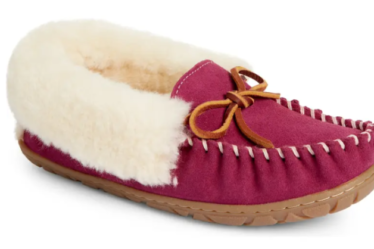
The clothing industry is a thriving sector, with many successful brands and business models to choose from. Like any business venture, owning a clothing business comes with its own unique set of benefits and challenges. In this blog post, we’ll explore some of the key advantages and obstacles you may encounter as a clothing business owner, as well as provide some tips and tricks to help you succeed.
Benefits of Owning a Clothing Franchise
Established Brand Recognition
One of the biggest advantages of owning a clothing franchise is the established brand recognition that comes with it. When you invest in a well-known franchise, you benefit from the reputation and trust that the brand has already built with consumers.
This can make it easier to attract customers and generate revenue, especially in the early stages of your business.
Proven Business Model
Another benefit of owning an apparel franchise is the proven business model that’s already in place. Franchisors have already gone through the trial and error process of establishing a successful business model, which means you don’t have to reinvent the wheel.
You’ll receive training and support on everything from product selection and pricing to marketing and customer service, all based on the franchisor’s successful track record.
Support and Training
Franchisors provide extensive training and ongoing support to franchisees. This includes assistance with site selection and lease negotiation, marketing and advertising materials, and access to proprietary technology and software systems. You’ll also receive guidance on inventory management, accounting, and other critical business functions.
This support can be invaluable, especially if you’re new to the apparel industry or have limited business experience.
Collective Buying Power
Clothing franchises benefit from collective buying power, which means they can negotiate better prices and terms with suppliers than independent retailers.
This can help you save money on inventory costs, which can be a significant expense in the apparel industry. You’ll also have access to a wider range of products and services that you might be able to afford on your own.
Challenges of Owning a Clothing Franchise
Initial Investment
One of the biggest challenges of owning a clothing franchise is the initial investment required. Startup costs can vary widely depending on the franchise you choose and the location of your business. In addition to the franchise fee, you’ll need to purchase inventory, lease or buy retail space, and pay for equipment, signage, and other start-up costs.
It’s important to carefully consider your financing options and create a realistic business plan before committing.
Royalty and Advertising Fees
Clothing franchisees typically pay ongoing royalties and advertising fees to the franchisor. These fees can be a percentage of your gross revenue or a flat rate, and they can add up quickly.
It’s important to understand the franchisor’s fee structure and budget accordingly to ensure you can still generate a profit after paying these fees.
Limited Autonomy
Franchisees are required to adhere to strict guidelines and operational procedures set forth by the franchisor. While this can be beneficial in terms of receiving training and support, it can also limit your autonomy as a business owner. Franchisors may dictate everything from store layout and signage to product selection and pricing.
It’s important to understand the extent of the franchisor’s control before signing a franchise agreement.
Competition
The apparel industry is highly competitive. You’ll be competing with other franchises as well as independent retailers. It’s important to differentiate your business and develop a strong brand identity to stand out from the competition.
This can be challenging, especially in crowded markets or during economic downturns.

Tips and Tricks for Success
Choose the Right Franchise
Do your research and evaluate each franchise’s track record, reputation, and support system. Consider factors such as the franchisor’s fee structure, training and support, and the potential for growth and expansion. Look for a franchise that aligns with your values and goals, and that has a strong brand identity and loyal customer base.
Create a Strong Business Plan
A business plan should include a detailed financial plan, market analysis, and a clear vision for the future of your business. It should also outline your goals and strategies for achieving them, including marketing and advertising tactics, operational procedures, and customer service policies.
Seek Professional Advice
Seeking professional advice from an attorney, accountant, or financial advisor can help you make informed decisions. These professionals can help you navigate the legal and financial aspects of owning a franchise, and provide valuable guidance on tax implications, financing options, and other critical business functions.
Build Strong Relationships with Customers and Employees
Customers are more likely to return to a business that provides exceptional customer service and a personalized shopping experience. Employees who feel valued and supported are more likely to be productive and engaged, which can improve overall business performance.
Stay Current with Fashion Trends
You’ll need to keep up with changing consumer preferences and stay ahead of the competition by offering the latest styles and designs. Follow fashion blogs and publications, attend trade shows and fashion events, and engage with your customers to understand their needs and preferences.
Focus on Marketing and Advertising
Develop a strong brand identity and marketing strategy that resonates with your target audience. Use social media, email marketing, and other digital marketing channels to reach potential customers and drive traffic to your store.
Partner with local organizations and charities to build goodwill and strengthen your community presence.
Conclusion
Owning a clothing franchise can be a rewarding and lucrative business venture, but it’s important to understand the benefits and challenges before making a commitment.
Remember, owning a franchise is a long-term commitment, so take the time to evaluate your options and make informed decisions that will set you up for success in the future!



